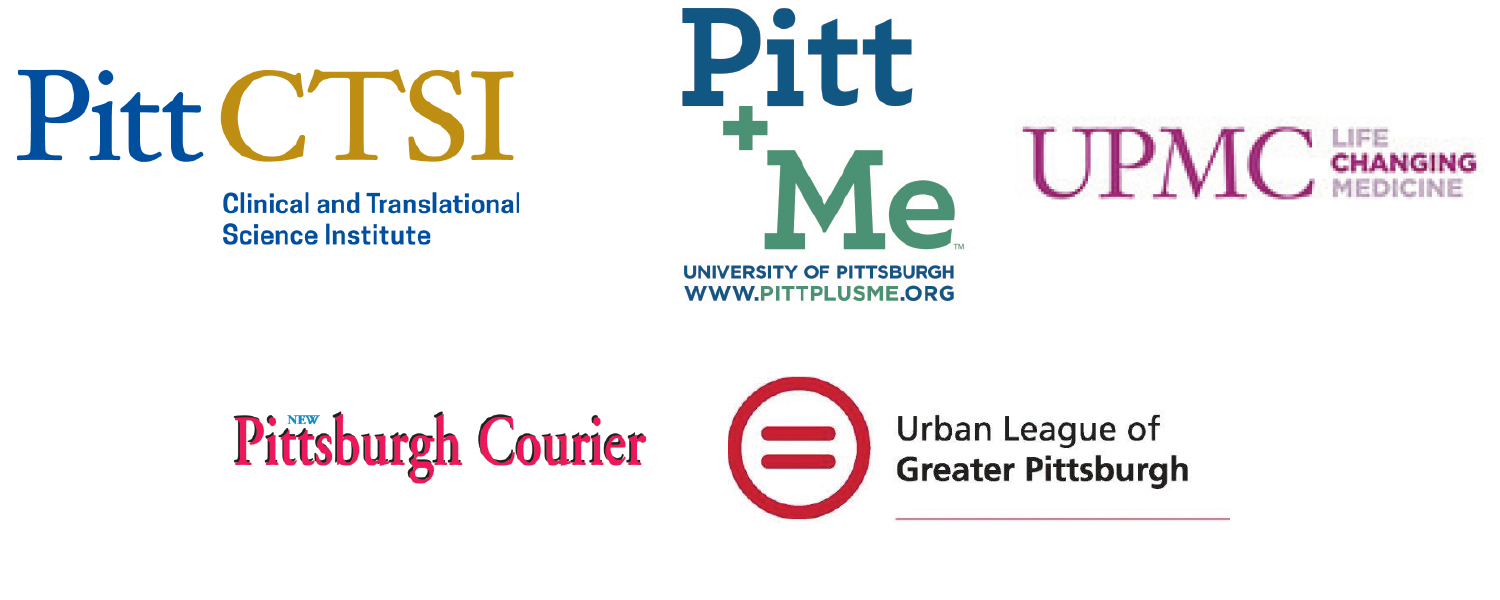DR. DANIEL SALAHUDDIN
Dr. Daniel Salahuddin, Assistant Professor in the Department of Family Medicine at Pitt’s School of Medicine, also works as a Psychiatrist at Sto-Rox Family Health Center.
There, and in the Hilltop Community Healthcare Center, Dr. Salahuddin sees chronic diseases that impact Black people unequally compared to white people.
The diseases include diabetes, hypertension, chronic kidney disease, and cancers like prostrate and lung. They also include post-traumatic stress disorder (PTSD), anxiety, depression, and substance use disorders like alcohol.
These chronic conditions occur disproportionally in Black men largely in part due to racism in all forms, whether it be systemic, structural, or interpersonal. “Black men tend to live in a world of hypervigilance due to these factors,” Dr. Salahuddin says. “They have to be over alert to everyone and everything around them.”
Human beings rely on this “fight or flight” response to stay alive. However, constantly being in a state of readiness to battle or run isn’t natural. It’s also not healthy.
“Fight or flight produces cortisol, a stress hormone,” Dr. Salahuddin explains. “Cortisol increases inflammation, which can lead to chronic diseases that impact both physical and mental health.”
In his practice, Dr. Salahuddin sees health disparities play out, but not like we might think. “The Black men I meet with are often lost to follow-up care. I may see them once or twice, prescribe medicine that may or may not help — then not see them again for months, years, if not ever…. Sometimes, this is due to incarceration, which we know impacts Black men the most. Often, it’s about mistrust toward the medical system and money. Which would you choose? Work that supports your family or unpaid time off to visit a doctor you may or may not trust?”
To address this, it’s important for patients and healthcare providers to work in partnership with each other. “To build trust, we need to approach every interaction with humility and always act on Black patients’ behalf,” he says. “More important than my expertise as a doctor is to listen to, hear, and see people and validate their experiences by asking, ‘What are your goals? What will help you live a healthier life? How can we work together to make this happen?’”
Validation is an important way to help establish therapeutic alliance and support patients in making healthy lifestyle changes. By reflecting back, or “mirroring,” what a patient is sharing, they may be able to better tap into and understand what’s motivating them.
For example, on the journey to stop smoking, many people are in a state of uncertainty. Dr. Salahuddin explains, “You want to stop smoking, but it helps relieve stress. But your kids hate it and it’s expensive. But it helps you calm down and focus — and is part of your daily routine, — and you’ve tried quitting multiple times without much success. My role is to reflect that uncertainty – to listen and validate it, which can help a patient examine their motivations for certain behaviors, which may ultimately lead to behavior changes, including giving up cigarettes.”
During the pandemic, Dr. Salahuddin was a host of the popular Ask a Black Doctor Facebook event, which offered Black viewers information about the COVID-19 pandemic, vaccines, virus mutations, policies and processes, and myths vs facts.
Now, he’s a co-host and facilitator of Sundays At 7, a weekly Zoom event that’s transitioned from mental health education to a beautiful support group where Black people can process stress, get peer support, hear and discuss news, and share laughs.
“Again, we’re looking at the power of community to topple barriers to Black men’s health,” says Dr. Salahuddin. “Yes, it’s important for Black men to see a PCP regularly for vaccines and screenings, so we can detect health concerns early on,” Dr. Salahuddin explains.
“But it’s also equally important to encourage Black men to connect with others in barbershops, churches, and community centers,” he adds. Being in community and feeling connected to others is a type of informal mental health support. “It lets people know you’re not suffering alone. You can let down your guard and know that you are safe. Human beings are not designed to handle things alone, but with support from the village. When we’re in community, we better understand ourselves and others.”
Dr. Salahuddin believes that when Black men allow others to see them authentically —without their protective armor — it benefits them physically and mentally and has a huge impact on community health.
“Healthy Black men strengthen the community as father figures, mentors, and elders,” he says. “Their presence has a ripple effect on family and community dynamics that’s foundational. These men are role models who signal to Black youth, ‘This is how I want to live my life.’”
